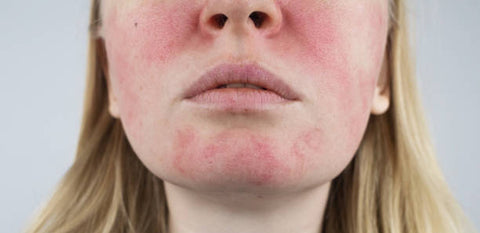What is Rosacea?
Rosacea is a common skin disorder that affects millions of people. Characterized by facial redness, bumps, and sometimes pimples, it can range from mild to severe.
Knowing the symptoms and understanding the treatments and management strategies can help you manage this disorder.
Symptoms:
Rosacea symptoms vary from person to person and can range from mild to severe. The most common symptom is facial redness, which is usually localized to the cheeks, nose, chin, and forehead. Other common symptoms include visible blood vessels, bumps and pimples, dryness and irritation, and thickening of the skin. In some cases, rosacea can affect the eyes, causing them to become red, itchy, and swollen.
Development:
Rosacea is a chronic skin condition that tends to worsen over time. In the early stages, the redness may come and go. As it progresses, the redness can become more persistent and may be accompanied by other symptoms. In severe cases, the facial redness can become more intense and can cause permanent damage to the skin.
Treatment and Management:
The best way to treat and manage rosacea is to see a dermatologist or other health care professional. They can help diagnose the condition and recommend a treatment plan. Treatment options include topical medications, oral antibiotics, laser or light treatments, and other lifestyle changes
Lifestyle Changes:
In addition to medical treatments, making lifestyle changes can help manage rosacea. Avoiding triggers such as sun exposure, extreme temperatures, and certain foods and drinks can reduce flare-ups. Wearing sunscreen every day and avoiding irritating skin care products can also help.
Conclusion:
Rosacea can be a difficult condition to manage, but with the right treatment and lifestyle changes, it can be managed. If you think you may have rosacea, it's important to see a doctor or other health care professional to get a proper diagnosis and treatment plan.












